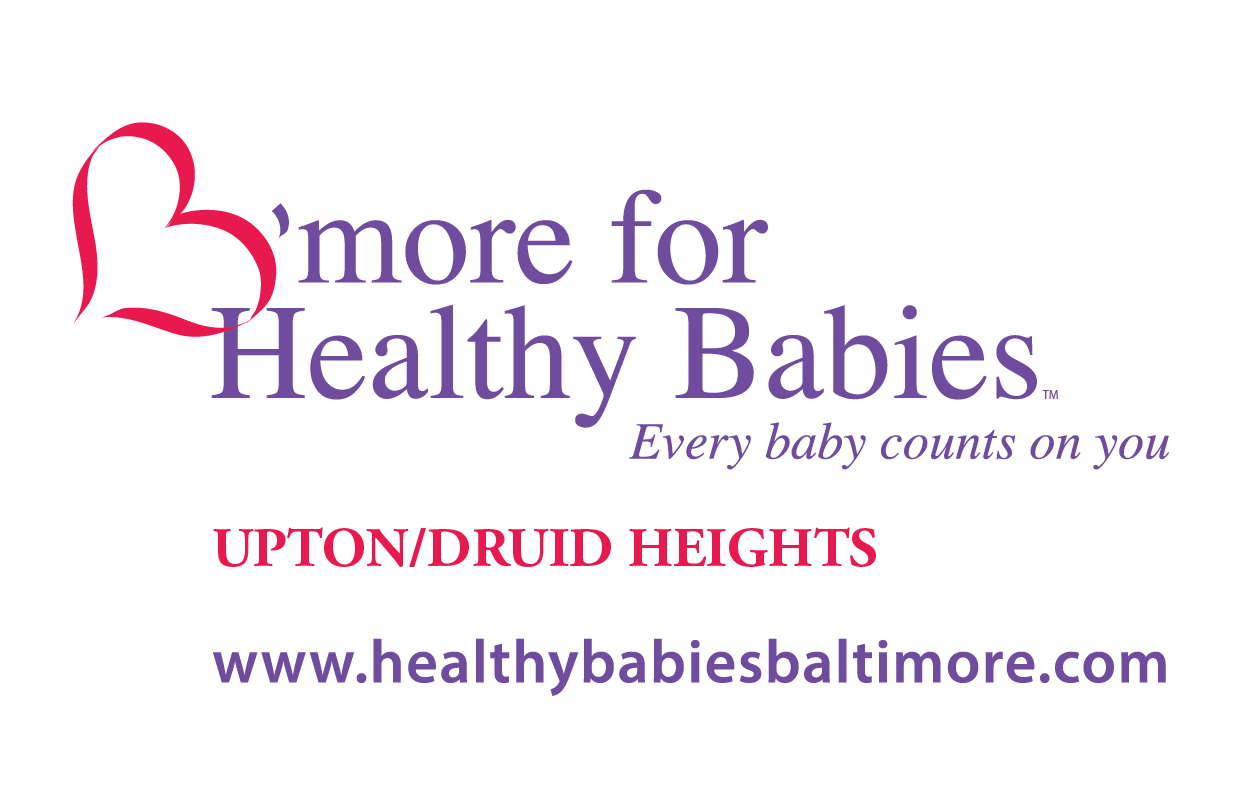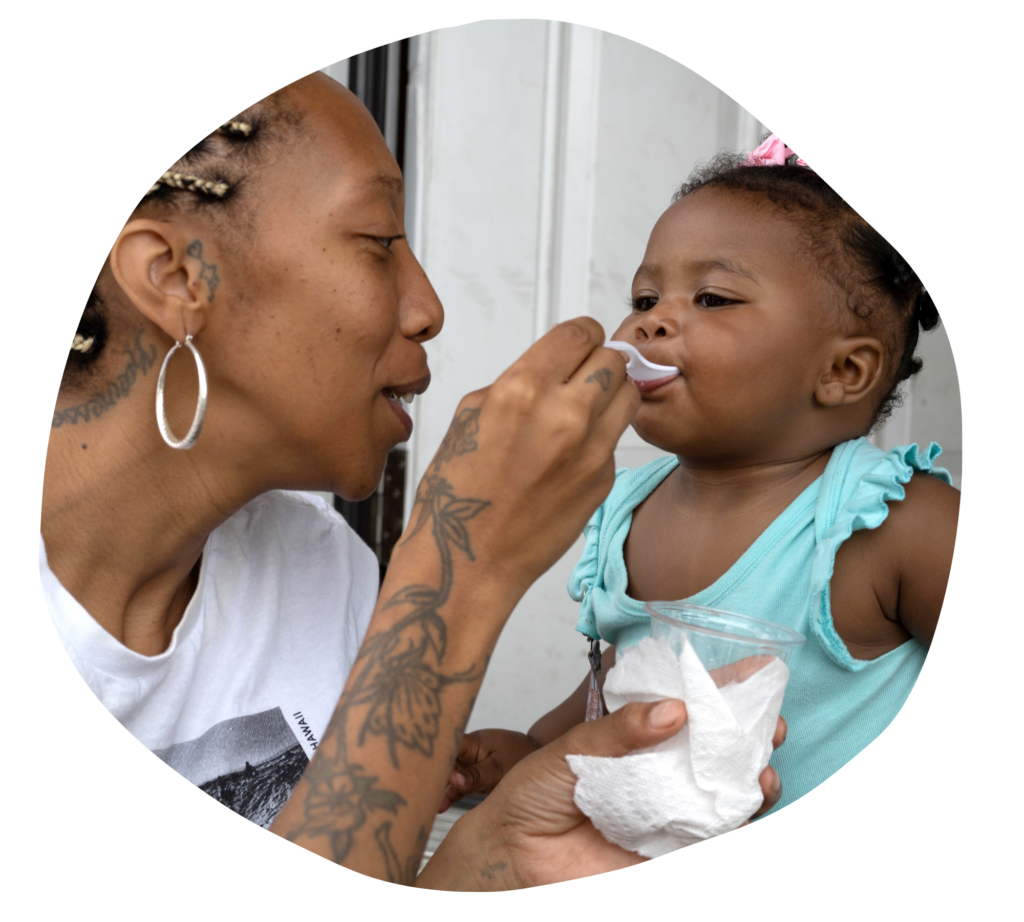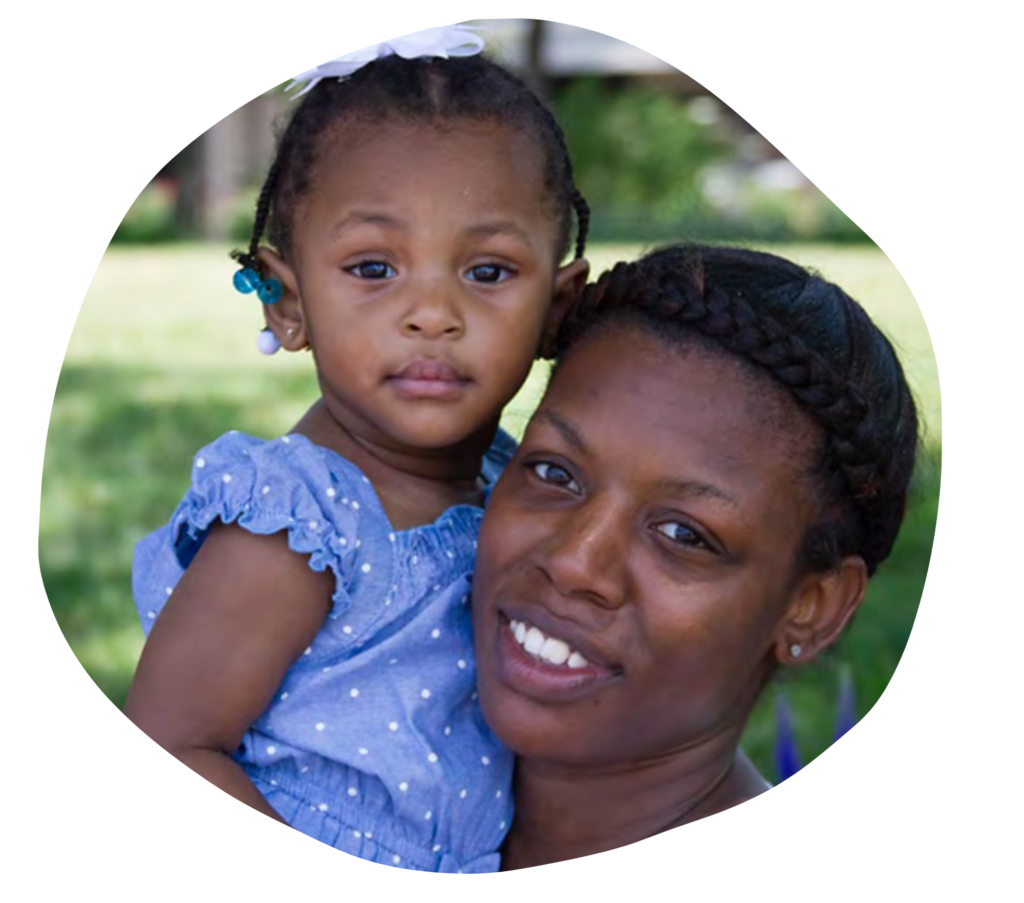B’more for Healthy Babies

B’more for Healthy Babies began as a place-based initiative with one specific goal: To reduce the infant mortality rate in Upton/Druid Heights, where 10,000 residents welcome 200 new babies each year, and where the infant mortality rate has been historically high. As a result of the program’s work and that of partner efforts, there were no fetal deaths in the neighborhood between 2014 and 2020.
B’more for Healthy Babies works with the community to ensure positive birth and early parenting experiences with a focus on safe sleep, smoking cessation, breastfeeding and reproductive health. The program has since evolved to focus on building parental power to meet the broader needs and aspirations of families and uses creative ways to share information.
Barbers in the neighborhood now talk with their customers about how to put a baby to sleep so it does not die of Sudden Infant Death Syndrome. Men in barbershops have hard conversations with each other about things like child sexual assault. B’more for Healthy Babies helps support and seed those conversations by raising awareness of the issues and solutions so that community members are knowledgeable and engaged. Community members tell each other what they’ve learned and everybody who gets into the barber’s chair talks about the big issues.
The program takes scientific data, evidence, and best practice information and puts it into the real world in a way that helps people care about it and use it. It gives parents simple steps to avoid harm and supports them in taking action. Families may not be aware, even, that they are impacted by some issues before they engage with the program.
Parents are more powerful as a result. When they give birth in the hospital, they’re prepared to advocate for their needs. If they are pushing a call-for-assistance button to manage their pain and it is not being answered, they are armed with the tools to speak up in the hospital as effectively as possible.
Parents have also focused on mental health. Parents sometimes cope with pain by self-medicating and engaging in behaviors that don’t always support health. Some of the program’s work is to help people see how they can make better decisions when these issues arise.
B’more for Healthy Babies has attracted wide attention for its ability to engage families around these issues and to impact the infant death rate. The program focuses on where people are born, live, work, worship, play, and age as factors in a family’s health and development.
Parents who participate in the program are not only able to have healthier babies, but depending on their expressed needs, the program also facilitates them in obtaining employment, housing, and finishing school.
Get In touch


Supporting a New Mom With Diapers, Food, And More
“Being between jobs and not having the money can be scary and worrisome with a child… but knowing I had the support of Giselle and B’more for Healthy Babies helped relieve the stress.”
“Breastfeeding is the best thing I could have ever done for my baby. I feel awesome. I feel so good about myself that I am a young, black woman that is doing it.”
– Courtney, pictured here with her daughter, Denym, in 2016

by the numbers
158
families served

Served 158 new families with case management services and provided 408 referrals.
85%
breastfeeding moms

85% of moms initiated breastfeeding in the hospital
+13%
full-term babies

Improved the % of moms who gave birth full term from 2022-2023

